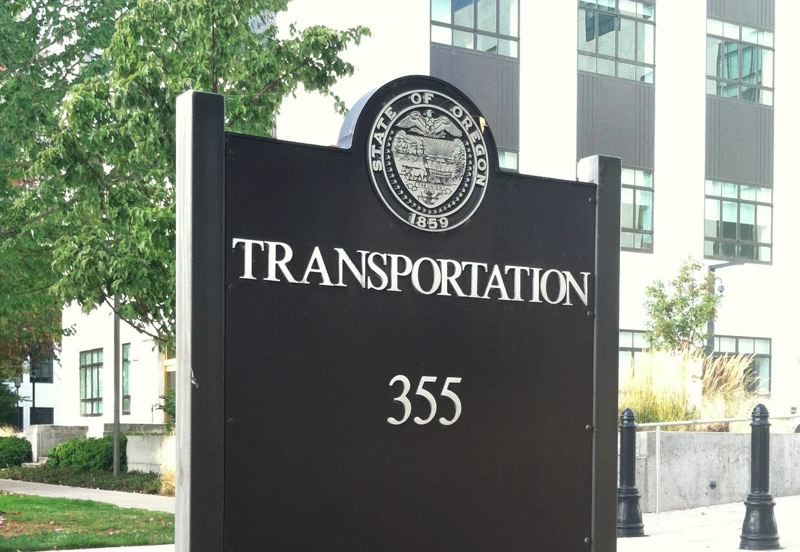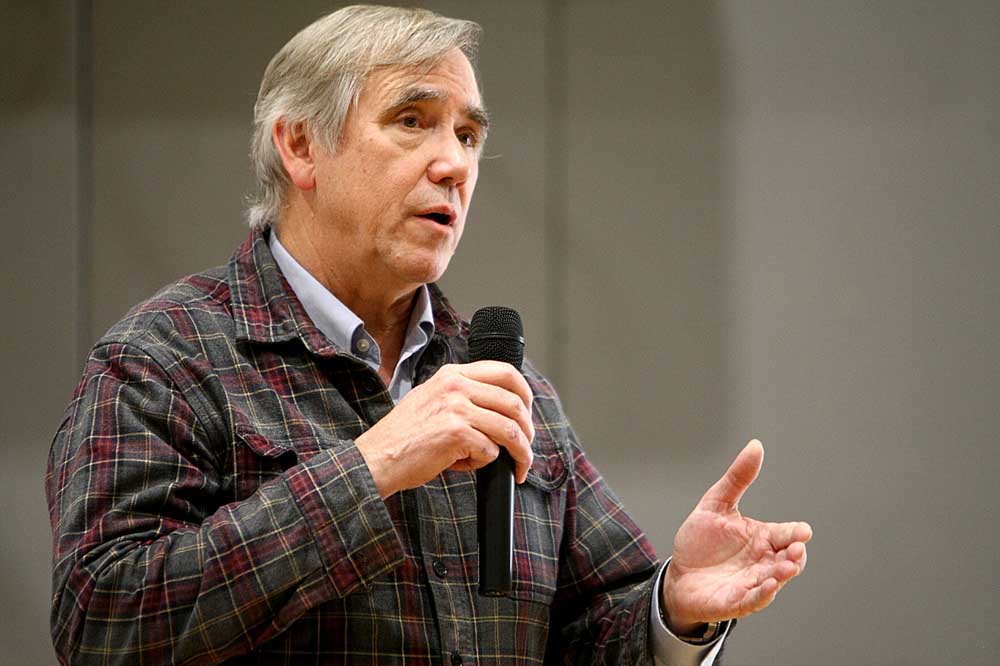Audit: ODOT contracts still subject to gamesmanship
Published 8:00 am Monday, March 6, 2017

- EO MEDIA GROUP - Lawmakers have raised concerns about how ODOT handles conflicts of interests
A decade ago, state investigators found that Oregon Department of Transportation contracting had become a cynical sport for one highway construction company — the executives there submitting low bids, then wagering over ways they could subsequently increase project costs to boost profits.
While that case is old history, a new state audit of ODOT suggests that its contracting system remains vulnerable despite a decade of warnings from the department’s own employees of contractor gamesmanship and fraud.
Trending
The audit released Monday by Secretary of State Dennis Richardson found that ODOT fails to employ methods to track “unbalanced” bids, meaning those with unrealistic line-item amounts meant to boost profits.
More than 90 percent of all ODOT-run projects completed from 2011 to 2015 included unbalanced bids, and a quarter of those later featured cost overruns, auditors found.
Significantly, the report echoes the criticisms of a recent $1 million consultant’s review of ODOT meant to address concerns by the Legislature. The consultant’s study noted ODOT’s frequent contract overruns and said that compared to other large agencies that contract out construction work, ODOT’s contracting was “worst in class.”
The new audit comes as state lawmakers weigh whether to approve new fees and taxes on Oregonians, such as a gas tax hike, which will be spent on hefty road and bridge contracts meant to address a backlog of unmet needs.
The Secretary of State auditors’ critique of ODOT bidder gamesmanship did not come as news to Director Matt Garrett, who has run the department for more than a decade. In fact, the new audit’s findings are strikingly similar to those of a 2008 report on unbalanced bidding issued by ODOT’s internal auditors — suggesting that the same issues remain.
In 2008, the ODOT auditors suggested new software to track unbalanced bidding could save millions of dollars for a relatively minor upfront cost.
Trending
ODOT’s response to the latest audit — which makes a similar recommendation about software — closely echoes the department’s response a decade ago. It questions the audit’s methodology, but agrees with the recommendation to closely track line items in the bid through to project completion.
New audit findings
ODOT spends about $400 million a year on construction. In the five-year span reviewed by the Secretary of State auditors, ODOT oversaw 413 construction projects that cost $1.8 billion.
Oregon uses a traditional low-bid system of contracting in which bidders on projects list the expected cost and quantities for line items in the project — such as asphalt, flagging costs and trucking.
But to win the bid, contractors sometimes assign unrealistically exorbitant prices per unit to items for which they think ODOT underestimated quantities. Meanwhile, contractors can lowball other line items, pricing them at 1 cent, to keep overall prices low. That paves the way for a winning low bid that then can be inflated through contract change orders, auditors found.
In fact, 61 percent of the projects reviewed by the Secretary of State had one or more unbalanced bid items that were at least double their estimated cost, according to the audit.
ODOT doesn’t deny the system allows this.
“Contractors may make a token bid (i.e., penny bids), front-load bids, or price-unit bids with large variations from the final engineer’s estimate in an attempt to minimize risk and maximize profits while keeping the overall bid low,” admitted ODOT Highway Administrator Paul Mather in his response to auditors.
At the heart of the problem is that ODOT uses different software at the different stages of project cost estimation, bidding and project completion, making it impossible to track patterns in how bid line items change over time.
“If agency leadership decides to implement enhanced tracking and scrutinize unbalanced bidding, the state could potentially realize significant savings by avoiding project cost increases. Inaction will continue the status quo of incomplete data that prevents ODOT from evaluating unbalanced bidding that can lead to project cost increases,” according to the new report.
Mather, in ODOT’s offical response, questioned the auditor’s methodology saying it failed to show that unbalanced bidding played a role in the department’s cost overruns. He noted that the total cost of the projects came in under their estimated cost, reflecting that ODOT sometimes benefits when contractors figure out cheaper ways of completing projects.
Contracting issues not new
In 2003, then-Gov. Ted Kulongoski signed a $2.5 billion transportation package intended for new roads and bridges, with the bulk of the work intended to be contracted out.
Over the years, however, problems arose with contractors, including with Ross Brothers — a firm that the Oregon Department of Justice in 2008 accused of civil racketeering using lowball bids and padded billing. That’s the firm where executives were accused of making wagers over what change orders they could persuade ODOT to approve.
The following year, the state and Ross Brothers settled when the company agreed to dissolve without admitting wrongdoing. In the wake of the settlement, ODOT Director Garrett vowed victory. He said the agency was making changes to ensure Ross Brothers types of problems didn’t happen again.
But internally, records show, the department resisted recommendations from its own audits division on how to address the problem of unethical lowball bidding.
Mary Hull Caballero, now the city of Portland’s elected auditor, formerly worked at ODOT’s internal audits unit. In 2008, she did the research for the audit that similarly called for investing in a software tracking system to monitor patterns of unbalanced bidding. She raised the specter of whether unbalanced bids and poor contract tracking were contributing to an “inflation spiral” of overspending by ODOT.
Hull Caballero found other states had reported good savings from software sold by the American Association of State Transportation Officials. Michigan, for example, saved 28.5 million over nine years.
In its response, ODOT responded that it didn’t have money for the software, but would form a “task group” to look at the recommendation.
Now, the new audit and the $1 million consultant’s review indicate ODOT’s contracting continues to be a problem.
ODOT, for its part, says it already is on top of the issue.
Mather, in his response to the new audit, said the department has taken the “initial steps” of purchasing the software sold by AASHTO to track bids — the same software recommended by Hull Caballero in 2008.
ODOT hopes to have it up and running by 2018, Mather wrote.
Nick Budnick is a reporter for the Pamplin Media Group’s Portland Tribune.





